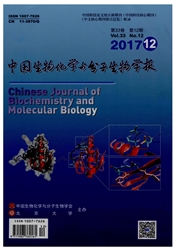

 中文摘要:
中文摘要:
Farnesoid X 受体(FXR, NR1H4 ) 是原子荷尔蒙受体总科的一个成员。当然而,他们变老时,以前,研究证明 FXR/ 老鼠自发地得了肝肿瘤的关联到人的 hepatocellular,癌(HCC ) 不清楚。这研究的目的是观察 FXR 表示是否也是在 HCC 的 downregulated 并且在 HCC 讨论减少的 FXR 表示的机制。FXR 和小 heterodimer 搭挡(SHP ) 的表示被即时 PCR 和 immunohistochemical 技术测量。FXR 和它的倡导者活动的表示上的支持 inflammatory cytokines 的效果在主要 hepatocytes 或 HepG2 和 Huh7 房间线被决定。我们的结果证明在人的 HCC 的 FXR 和它的目标基因 SHP 的那表情是强烈与正常的肝纸巾相比的 downregulated。另外,支持 inflammatory cytokines 对由禁止 FXR 倡导者活动的减少 FXR 表示有能力。在结论,这个工作表明 FXR,建议在人的 HCC 开发的 FXR 的一个潜在的角色表示是强烈,在人的 HCC 的 downregulated,它可以被引起由减少了 FXR 倡导者活动。
 英文摘要:
英文摘要:
Farnesoid X receptor (FXR, NR1H4) is a member of nuclear hormone receptor superfamily. Previously studies showed that FXR-/- mice spontaneously developed liver tumors when they aged, however, the relevance of which to human hepatocellular carcinoma (HCC) is unclear. The aim of this study is to observe whether FXR expression is also downregulated in HCC and discuss the mechanism of the reduced FXR expression in HCC. Expression of FXR and small heterodimer partner (SHP) was measured by real-time PCR and immunohistochemical technique. Effect of pro-inflammatory cytokines on expression of FXR and its promoter activity were determined in primary hepatocytes or HepG2 and Huh7 cell lines. Our results showed that expression of FXR and its target gene SHP in human HCC was strongly downregulated compared to the normal liver tissues. In addition, pro-inflammatory cytokines were able to decrease FXR expression by inhibiting the FXR promoter activity. In conclusion this work demonstrates FXR expression is strongly downregulated in human HCC, which may be caused by decreased FXR promoter activity, suggesting a potential role of FXR in human HCC development.
 同期刊论文项目
同期刊论文项目
 同项目期刊论文
同项目期刊论文
 期刊信息
期刊信息
